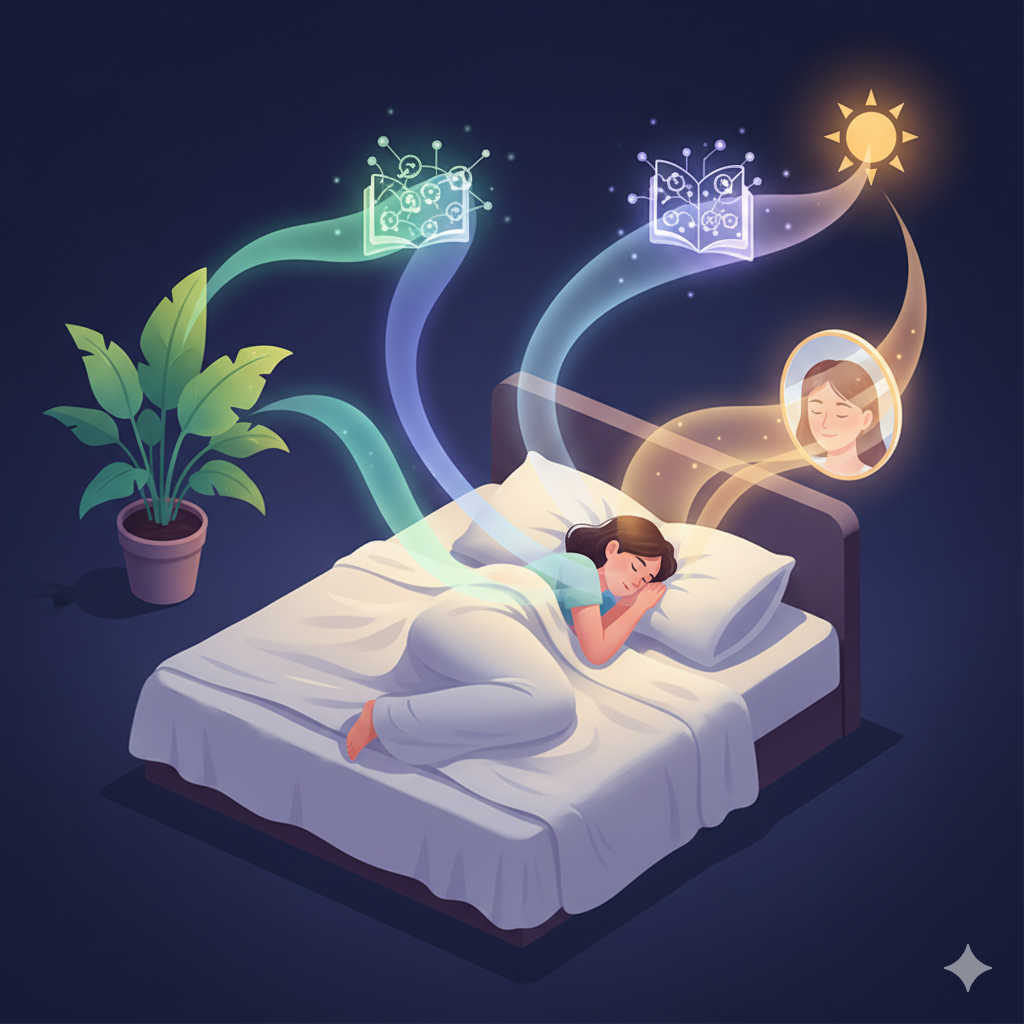Sleep! Yes, really.
Most people underestimate the power of a good night’s sleep, thinking of it as a luxury rather than a priority. Yet, science shows that sleep is the foundation for everything you want to achieve—whether it’s looking your best, performing at your peak, or simply feeling happier every day.
Why does sleep matter so much?
- Better Looks: Quality sleep is your body’s natural restoration period. It accelerates skin repair, reduces eye bags, and gives you that fresh, glowing look. Studies like one published in the journal Sleep found that people who got enough sleep appeared healthier and more attractive to others (Axelsson et al., 2010).
- Sharper Mind: Sleep is critical for processing information and consolidating memories. According to a study in Nature Neuroscience, sleep improves learning and helps your brain make connections—so you’ll think faster and remember more (Walker & Stickgold, 2006).
- Healthier Body: Chronic sleep deprivation increases your risk for heart disease, obesity, and even diabetes. The CDC and Harvard Medical School have both linked insufficient sleep to increased inflammation and metabolic disorders.
- Happier Mood: Good sleep stabilizes your emotions and strengthens resilience to stress. Research in Sleep Medicine Reviews notes that even short-term sleep restriction leads to more negative moods and difficulty managing stress (Pilcher et al., 1997).
What can you do?
Prioritize sleep tonight. The number 1 way to improve your sleep is to set a regular bedtime. Don’t stress out if you don’t follow it 100%, but try. After that, there are lots of things you can do to improve your quality of sleep, like: managing light exposure, nutrition, exercise and supplements. The difference in how you look, feel, and perform can be truly transformative.
Make sleep your superpower—and watch every aspect of your life improve.
References:
- Axelsson, J., et al. “Beauty sleep: experimental study on the perceived health and attractiveness of sleep deprived people.” Sleep, 2010.
- Walker, M.P., & Stickgold, R. “Sleep-dependent learning and memory consolidation.” Nature Neuroscience, 2006.
- Pilcher, J.J., et al. “Sleep deprivation and mood.” Sleep Medicine Reviews, 1997.


Leave a Reply
You must be logged in to post a comment.